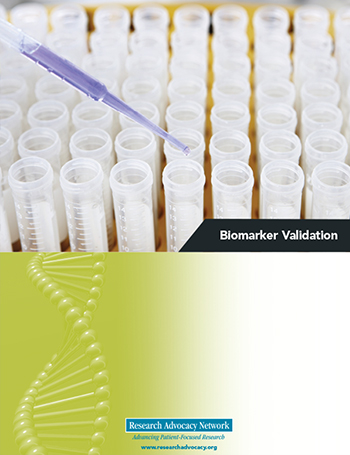
Biomarkers are increasingly used in all areas of medicine to help better predict, characterize, and treat disease. In cancer, biomarkers are often used to help us make medical decisions such as whether or not to undergo chemotherapy, or whether a given medication is likely to be effective for us. Given this important role, it is critical that biomarkers be as accurate as possible.
Biomarker validation refers to the process by which biomarkers are tested for their accuracy and consistency, as well as their ability to tell us something important about our health or disease. Although there is no one single measure that can be used to determine the validity of all biomarkers, there are general criteria that all biomarkers must meet in order to be useful. In the following text, we review the definition of biomarkers and discuss the components of validity. We then examine the methods by which biomarkers are validated and consider some examples of cancer biomarkers in use today. We conclude with information about situations where advocates might find this information useful.
